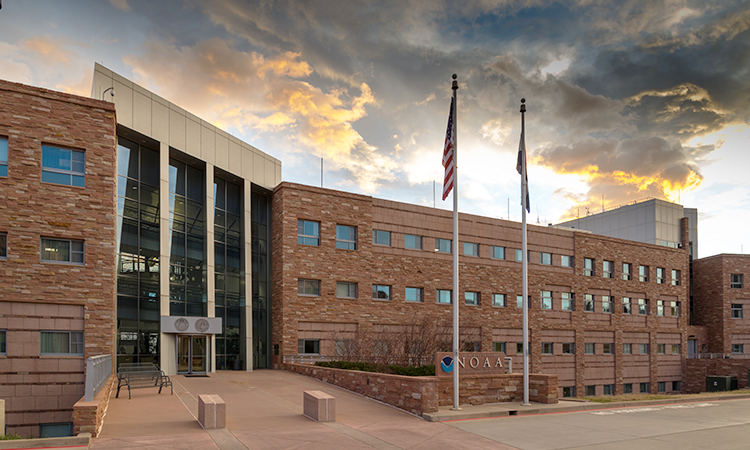Seminar
The Coming Tidal Wave of Rocket Launches and Their Emissions

Marty Ross, Aerospace Corporation
Wednesday, May 10, 2017, 3:30 pm Mountain Time
DSRC 2A305
Abstract
Combustion emissions from rocket launches are usually considered an insignificant perturbation to the global atmosphere. Several decades ago, research on ozone depletion caused by solid propellant rocket engines, of the type used by the Space Shuttle, successfully resolved many first order questions concerning those particular rocket emissions. And though the Shuttle accounted for only a portion of global launches, programmatic interest in rocket emissions declined once the Shuttle retired in 2006. Nonetheless, global launch emissions doubled in the following decade as space activity grew across Asia and the space industry transformed from a state sponsored activity into a commercial enterprise. The newly invigorated global space enterprise is developing heavy lift launch vehicles, methane fueled engines, and authentic rocket reusability, forming a sort of economic coin with decreased launch costs on one side and increased launch rates on the other. Agile, low cost, launch services are expected to enable new types of space systems such as constellations of thousands of Low Earth Orbit comsats, "space tourism," innovative Earth observations, and even Mars Colonization and asteroid mining. Should these systems materialize, scenarios of greatly increased rocket emissions naturally follow, perhaps leading to a circumstance where the impacts of rocket launches approach those of global aviation. Even so, little research is available to assess how such a surge of rocket emissions could affect the composition and radiation flows of the global atmosphere. We review the variety of rocket emissions, how they affect the atmosphere, what the planned global space industry revolution means for rocket emissions, and identify scientific questions that will need to be answered in order to reliably assess the impacts of this impending "Next Economic Revolution."
Marty Ross is a Senior Project Engineer for Civil and Commercial Launch Projects with the Aerospace Corporation, and an Adjunct Professor with Embry Riddle Aeronautical University.
ALL Seminar attendees agree not to cite, quote, copy, or distribute material presented without the explicit written consent of the seminar presenter. Any opinions expressed in this seminar are those of the speaker alone and do not necessarily reflect the opinions of NOAA or CSL.